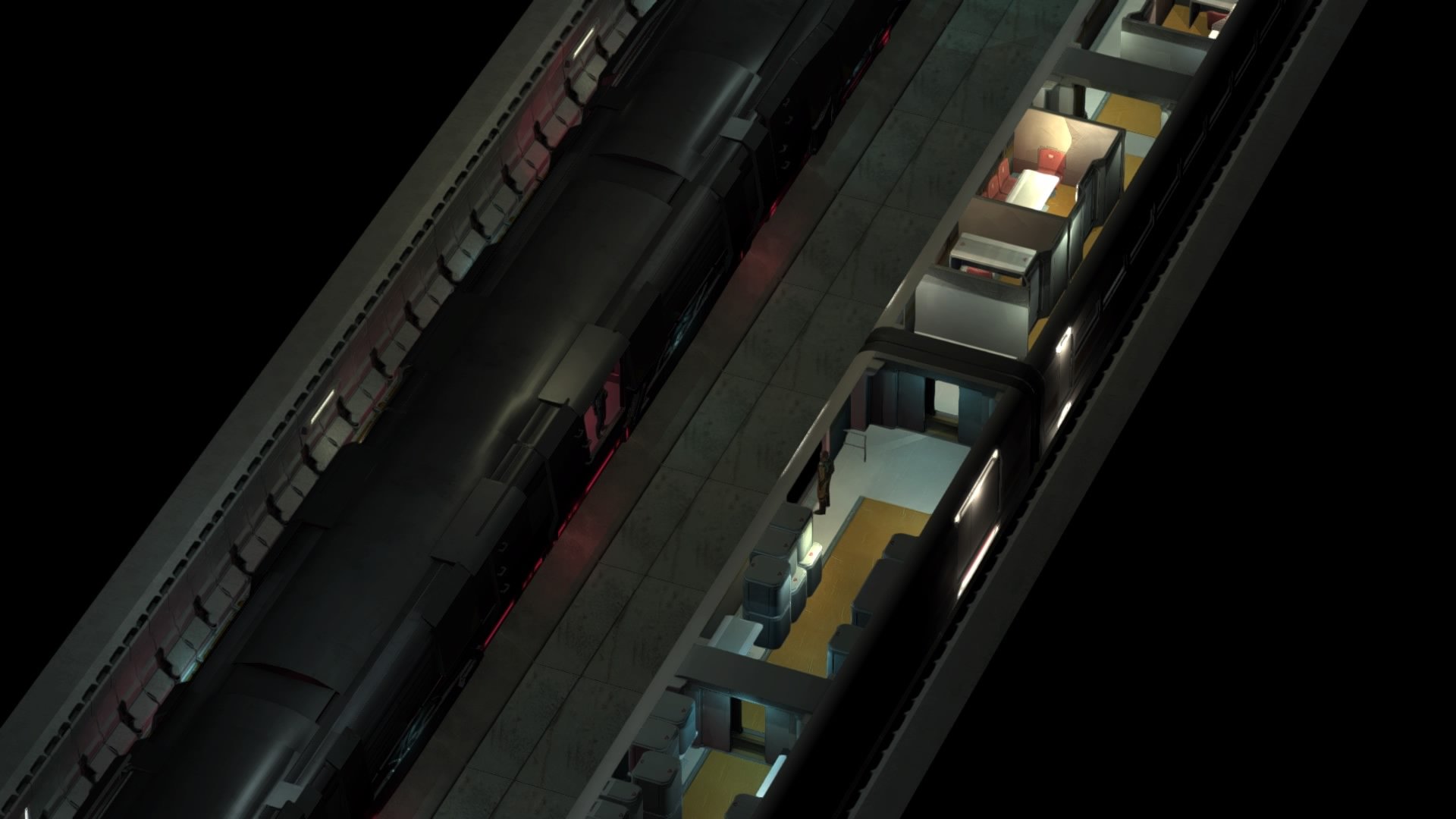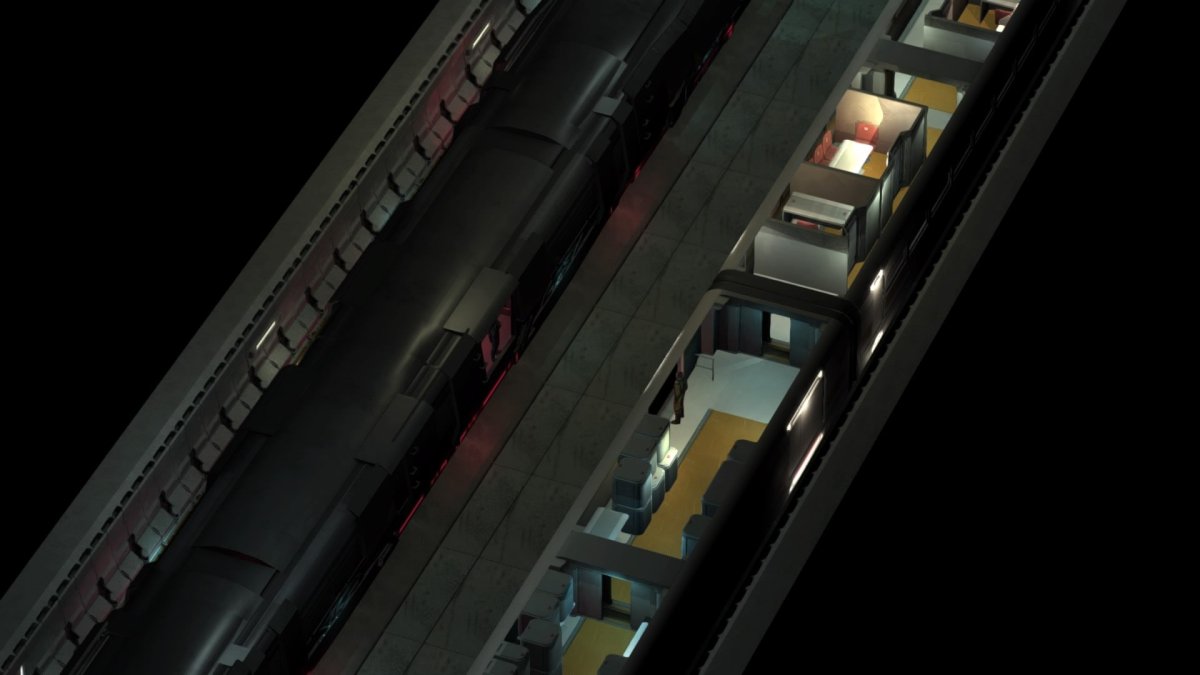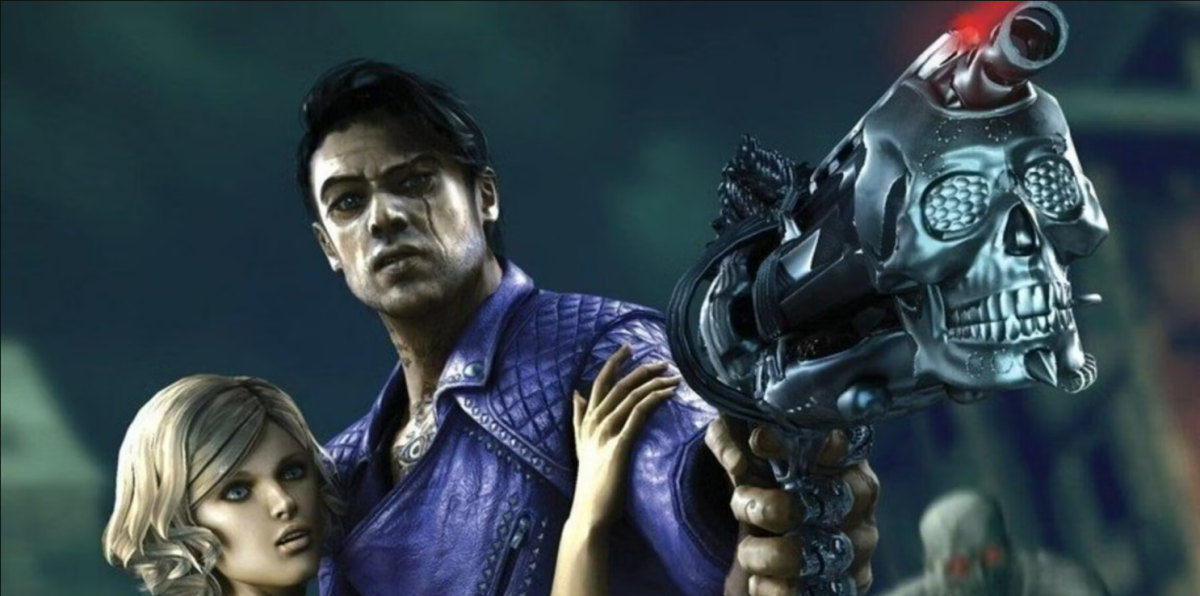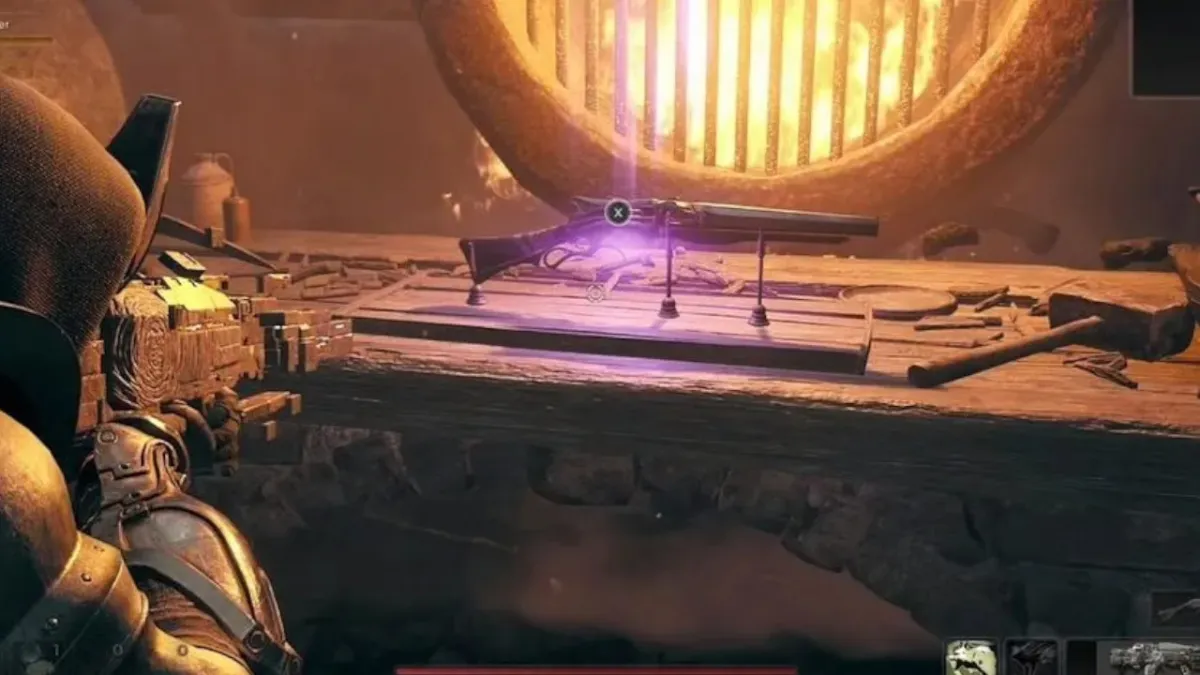Gimmie back my family!
Old-school point-and-click adventure games often left the player without the faintest of clues as to where to go next. You had a relatively small area to move around in with a bunch of items to pick up. Sometimes you could combine certain items, other times you just mashed “use” on everything in the environment until something clicked.
While the genre definitely grew over the years to better guide the player along, a lot of people have fond memories of the days when obscurity was the norm. Poking your nose into literally everything was the game, even if it was kind of mundane and barely interactive.
Sadly, I found myself thinking of that while going through Divide, even if I was a little intrigued by the story.

Divide (PS4)
Developer: Exploding Tuba LLC
Publisher: Exploding Tuba LLC
Released: January 31, 2017
MSRP: $24.99
Divide begins with a Tarantino-style flash-forward prologue. You are immediately thrown into the action, given a weapon, and told to escape. You get a quick introduction to the controls, how the combat feels, and a possible hint of the goal before being shifted back to “six hours earlier.”
Despite having similarities to adventure games, Divide is actually an isometric twin-stick shooter, at least as far as basic controls are concerned. You move around with the left stick and glance/aim with the right stick. Combat is definitely featured, but is typically frowned upon. That doesn’t have to do with some kind of moral quandary, either, just that the odds are likely not in your favor.
After all of that nifty action and high intensity, the next hour is pretty low-key. You assume the control of a man named David; he is a single father taking care of his daughter after an unfortunate accident has taken his wife from him. He wasn’t given much in the way of details, just a hint that her employer may have been involved.
One day, he receives a message from an old colleague of his wife’s to come and visit him. This man, named Alton, says he has some information corresponding to the “accident” that David’s wife was in. Apparently there was a cover-up going on at their employer, Vestige, and Alton has the key to solving the puzzle.
So you basically walk around, talk with your daughter, reminisce about your wife, and do everything that isn’t action-related for the first hour. I mean, that is fine and all, but it definitely is a slow start to an otherwise simple premise. You’re given so much exposition and contrived character interactions that I was beginning to wonder if this game would play out like a Telltale production, only with a different viewpoint.
After meeting Alton and receiving a briefcase from him, the game shifts to later in the evening when David and his daughter are at home. David does some rudimentary detective work in the house, facilitated by looking at things with the right joystick and pressing R2 to interact, and discovers a passcode that will open Alton’s package. Inside is something that changes David’s life.
It seems Vestige was working on some contact lens technology that would give people sort of Minority Report-styled HUD displays. David is now able to glance at objects and digitally interact with them. He begins to find some hidden things in his house that his wife left behind, which piques the curiosity of his daughter.
Before David can explain anything, he glances at the briefcase and triggers an EMP explosion. Next thing he knows, he wakes up in some seemingly abandoned tunnel with no one else around. What exactly happened to David? Well, that is what the rest of the game details.

I could just spoil the twist, but the discovery is part of the journey with Divide. The game is obscure by design, almost to a point where you’ll aimlessly wander for an hour or so in each area trying to figure out how to progress. I know that I spent a good four hours before I got to that prologue section the game started with, which happens after the hour-long introduction sequence.
The general look of Divide is similar to games like Flashback. You’ll be exploring vacant space-station-like areas with very little in the way of graphical flair. One neat touch is that moving the right stick in any direction will illuminate digital path markers that can guide the player around.
You meet up with a mysterious woman, named Eris, who tries her best to grasp the story David is feeding her. He really has no clue what even happened and Eris is making the world sound like a dystopian nightmare; they are also apparently far removed from the time period David originates from, which further throws a wrench into the mix.

Then the gameplay loop becomes finding a main server with Eris, having her hack into it, and then sending you off to explore. You have to locate “hashes,” which are basically a form of currency that unlocks doors and lets you hack computer terminals. Sure, there is some combat mixed in, but it is so sporadic that it might as well not even exist. The AI is also pretty brain-dead, even if you can die in a few hits.
You then walk around, look at boxes and terminals, find “keys” and some upgrades for your equipment, and return to Eris. Move on to the next area and do it all over again; it feels like boiling down the essence of a game to its most basic principals and then doing nothing to expand upon or jazz up the proceedings.
You have a menu system, called the SOLUS, that lets you look at any information you’ve gathered and provides a rudimentary map, but I found it difficult to understand. Objectives are displayed on the map, but only after you actually find a station with a map. Until then, you’re left without any guidance on how to proceed. When you finish objectives, the map doesn’t update, either, so I often thought I had failed to complete something after wandering for 20 minutes.

The combat is also sluggish and unintuitive. You have to hold L2 to ready your weapon and swinging around with the right joystick takes far too long in most scenarios. Unless you are already pointed in the direction of your foe, you’ll usually suffer damage before even getting the chance to fire your gun.
When you first receive your gun, you can’t fire more than one shot every 10 or so seconds. It makes for situations where enemies will have three or four hit points and you’ll need to fire, run around like a headless chicken, and then fire again until they die. With the robotic foes, you can “hack” them, but the distance required to do so is so close in proximity that you’re likely to get shot once or twice.
You can find upgrades in the environment that will allow for more ammo or quicker recharge rates, but the game is purposely vague to the point of leaving out some key details. I ran into a lot of issues during my time with Divide and it took some correspondence with the developer to reveal that I had completely missed a key feature for my entire playthrough (which I’ll touch upon more below).
All in all, I was never particularly engaged from purely a gameplay perspective. What did get me hooked was the beautiful score. The soundtrack is really top notch, rivaling that of big-budget Hollywood films. It sounds like a mixture between the work Michael McCann did on Deus Ex: Human Revolution and Daft Punk’s take on Tron Legacy along with some orchestrated pieces.

The voice work is also pretty solid, if a little stilted. It helps to sell the tale of a man desperate to find his way home and a woman seeking refuge from an oppressive government. Both David and Eris have quality actors, though David’s daughter is a little hokey. She doesn’t appear in much of the game, so you don’t need to deal with her for too long.
What doesn’t work about the presentation is the graphical makeup. The textures seem low-resolution and the frame rate is rarely consistent. The game is targeting something around 30 FPS, but it routinely drops below that line and does so especially during combat. Sure, combat is frowned upon, but there are a few sections where even while running away, an enemy’s missed shot will cause slowdown to occur.
I also have to mention the numerous glitches I faced while trying to finish this title. When you arrive at the prologue section during normal play, if you die or reload a checkpoint, the game will glitch out and prevent you from advancing. While that major issue was patched the night of release, I actually encountered another game-breaking bug at the finale. That missed feature I hinted upon is part of the interface, called SOLUS. You’re supposed to be reading the text boxes and activating a hidden feature, called “Supervisor Mode,” which allows you to hack other people.
While I did have the entry related to unlocking this mode, it never mentions that you need to click the joysticks and move them in specific directions to activate it. As such, I never utilized it and the ending glitched out because it didn’t know how to grant me access to a mode I didn’t currently have enabled. I was stuck in the very final hallway, unable to move and left with no real choices.

I also found a way to glitch that glitch by looking through my SOLUS menu and then exiting when I read over certain entries. This then let me walk around, but the enemies wouldn’t attack and I couldn’t open the main door or get Eris to move. It confused me, since I thought I was on to something.
What’s more, I found a few sections during my playthrough where I could walk out of bounds. Doing so got me stuck in some section of the map meant to be window dressing and required a reload. At another point, I died while a checkpoint was saving, ruining my checkpoint and locking the game up.
I had so many issues finishing the title that I was contemplating just calling it a dud. I felt really bad labeling this as a failure, simply because the secondary parts of the game are of high quality. Sure, Divide may not be the most polished title around, but it does have an intriguing plot and an atmosphere that is sure to please gamers tired of how linear modern gaming has become.
Thankfully, the major problems are all fixed. Two patches have been issued and players shouldn’t hit the same roadblocks I found. Maybe that personally sullied my own experience, but I’d rather be slightly frustrated and help the devs than have other people pay for a game and hit a brick wall.

Regardless of all of those mishaps, I didn’t have the best time with Divide. It isn’t a bad game, but it does leave a bit to be desired in terms of interaction and playability. It has a nifty story to tell backed up by high-quality writing, but the whole package should have been pushed back to iron out all of the kinks.
Hopefully the next patch for this game will let any interested parties have the best possible experience. Not every product is for every person, but it becomes impossible to defend something that actively breaks due to misinformation or buggy code. Divide deserves better than to be forgotten because of launch-day issues.
[This review is based on a retail build of the game provided by the publisher.]





